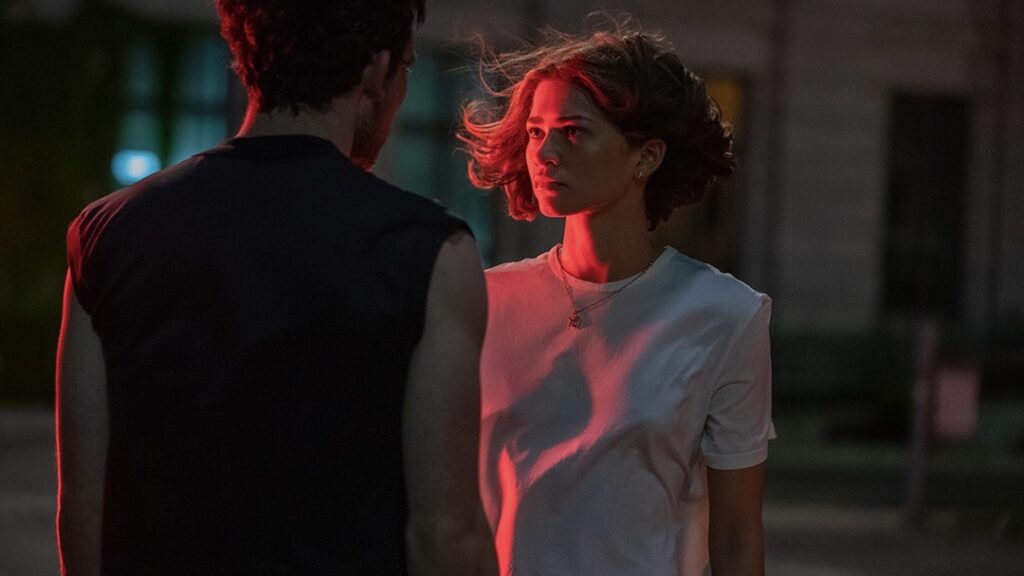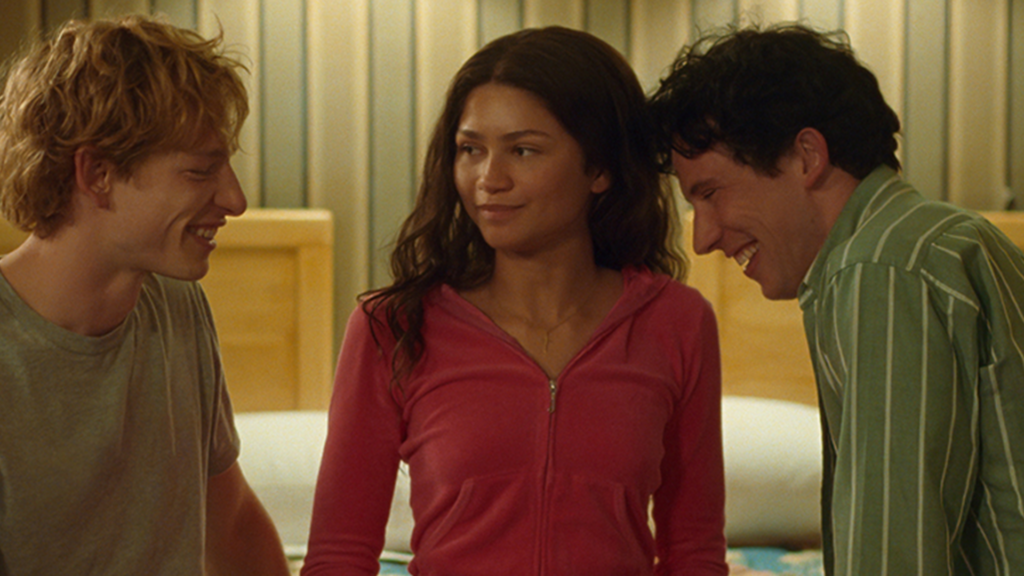Challengers review: Zendaya dominates homoerotic and charged tennis flick
"Challengers positively brims with homoeroticism and queer subtext which occasionally moves into explicit queerness"

There’s a moment fairly close to the beginning of Challengers when it feels like the film’s only explicitly queer characters are to be relegated to a naff gag. An older gay couple lusts after a sweaty and short short-clad Patrick Zweig (Josh O’Connor) as he tries to check into a hotel. It’s a brief bit that had audiences at an advanced screening laughing. “Is this it?” was the concern.
As a queer viewer, like many others, I’ve grown used to being baited with queerness in trailers only to be disappointed when I sit down to watch the damn thing. There are numerous examples of productions hinting at queer elements only for them to be a blink-and-you’ll-miss-it bit. The promo material for Challengers heavily suggested queer subtext if not outright queerness with a love triangle between Zendaya’s Tashi Duncan, O’Connor’s Zweig, and Mike Faist’s Art Donaldson. But could it serve up the goods? Thankfully, Challengers gets it over the net.
The story focuses on the relationships between the central trio darting back and forth over 13 years as we see how they all came to a low-level pro tournament in New Rochelle. Donaldson and Zweig grew up together becoming something of a star doubles pair before competing for Duncan’s affection. Duncan, a former tennis prodigy, now coaches her husband and the father of her child, Donaldson, after an accident on the court. This comes after Zweig and Duncan date. Duncan hatches a plan to get her husband out of a losing streak which involves pitting him against his former friend and her ex.
“All the tennis scenes [are] sexually charged and electric to watch”
Challengers positively brims with homoeroticism and queer subtext which occasionally moves into explicit queerness. As O’Connor teased before the film’s release, “The tennis is the sex.” With Zendaya’s character describing tennis as being “a relationship” and her playing against an opponent being “like we’re in love,” it makes all the tennis scenes sexually charged and electric to watch. The parallels go further as the trio likens winning a match to an orgasm.
At one point Zweig jests that he and Donaldson are in an “open relationship.” Although at that point neither has done anything explicitly queer with one another, having only masturbated beside each other once before. Duncan, ever in control, entices more out of the two men as they vie for her with the three-way kiss seen in the trailers taking an exciting and erotic turn.

Elsewhere queerness is explored as the two men eat churros while discussing Duncan, Zweig taking a big mouthful out of Donaldson’s while maintaining playful and direct eye contact. A banana gets a similar treatment later on. As the two young men compete for Duncan, Zweig even admits to being turned on by the situation further developing the film’s queerness. Some could argue this is more baiting of the queer community, but as Challengers writer Justin Kuritzkes told Attitude at the film’s London premiere, “It was important that the jealousy not just be [in] one direction.” If anything the film is making a statement about how men can still be afraid to explore their identities because of the systems and institutions in which we all live. Thet only way they can live out their relationship is on the court. It’s hot and it’s sweaty.
“Challengers is beautifully shot and intricately put together”
The performances by the central trio are excellent. As Duncan, Zendaya dominates. No longer playing a high-schooler, she relishes the opportunity to show off her acting chops as she plays the controlled and sometimes calculating female lead with delectable charm, cool, and sass. Meanwhile, O’Connor and Faist both give worthy performances selling a long-lasting relationship where much has been left unsaid and or not acted upon.
Much like his celebrated Call Me By Your Name director Luca Guadagnino has created a film where as much is said in the looks, the silences, and the actions as is spoken out loud. There is more to point to explicit queerness but it is subtle and requires the audience’s attention. Don’t expect to be spoon-fed here. Challengers is beautifully shot and intricately put together. The tennis scenes are often epic but can be guilty of being slowed down (literally) too much. This feels like it’s done to help build anticipation but when done too many times the film begins to drag. The film, just over two hours in length, feels like a long two hours.
Overall, it’s an energetic and hot film with fantastic performances at its core.
